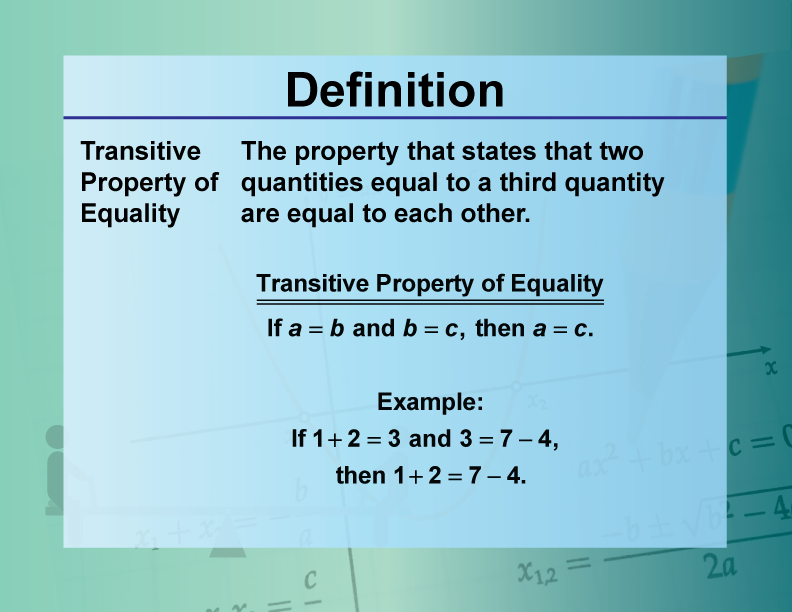
Display Title
Definition--Equation Concepts--Transitive Property of Equality
Display Title
Transitive Property of Equality

Topic
Equations
Definition
The Transitive Property of Equality states that if a = b and b = c, then a = c.
Description
The Transitive Property of Equality is a fundamental principle in mathematics. It states that if one quantity equals a second quantity, and the second quantity equals a third, then the first and third quantities are equal. For example, if
x = y
and
y = z
then
x = z
This property is used to justify steps in solving equations and proving mathematical statements.
In real-world applications, the transitive property is essential in logical reasoning and proofs. Understanding this property helps students build a strong foundation in algebra and develop rigorous mathematical arguments.
For a complete collection of terms related to functions and relations click on this link: Functions and Relations Collection
| Common Core Standards | CCSS.MATH.CONTENT.6.EE.B.5, CCSS.MATH.CONTENT.7.EE.B.4, CCSS.MATH.CONTENT.HSA.REI.A.1 |
|---|---|
| Grade Range | 6 - 12 |
| Curriculum Nodes |
Algebra • Expressions, Equations, and Inequalities • Applications of Equations and Inequalities |
| Copyright Year | 2021 |
| Keywords | equations, solving equations, definitions, glossary terms |